The young people of the Juruena to discuss climate justice
Workshops on IT Tirecatinga, and IT Apiaká-Kayabi to engage the youth of the Network, the Juruena person who proposes measures to adapt to the region’s
The young people in the Network of the Juruena play together in order to discuss the impacts of climate change in their areas, and to draw up proposals for action. The activities were carried out in August, in the Village of Blue Mountain range on Earth, the Indian IT-Tirecatinga in Sapezal, and the Village of Ytu the Waterfall, IT Apiaká-Kayabi, in Juara, and worked with the special participation of the Tatianny Smith, the Network’s Jandyras.
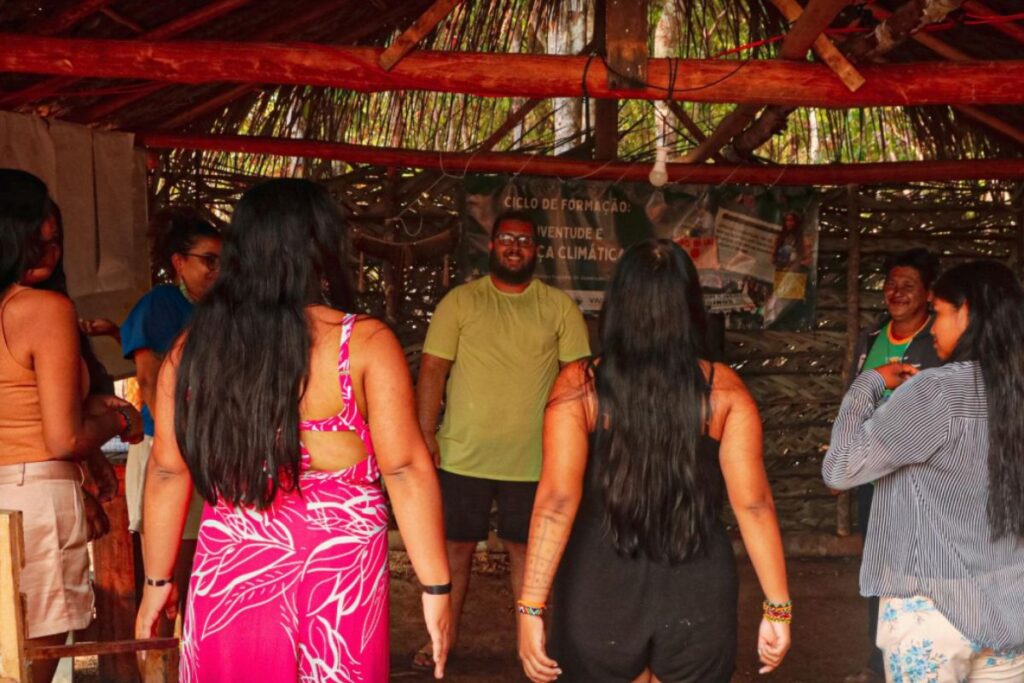
Made with support of the OPAN, and the support of the Institute for Climate and Society (cis), the initiative, the Voices for Climate Action (VA), and the Brazil Human Rights Fund (FBDH), and the the meetings provided a space for the exchange of knowledge and the formation of the 77 participants, of which 49 are in IT Apiaká-Kayabi (the Home of the Cult of the St. Sebastian, the Community site and the Movement of the Atingidos por Barragens – MAB), and 28 IT Tirecatinga (Enawene Nawe, and the Irantxe) to work in the discussions about climate justice, at all different levels, from the local to the international, to strengthen its links with other groups who are fighting for this cause.
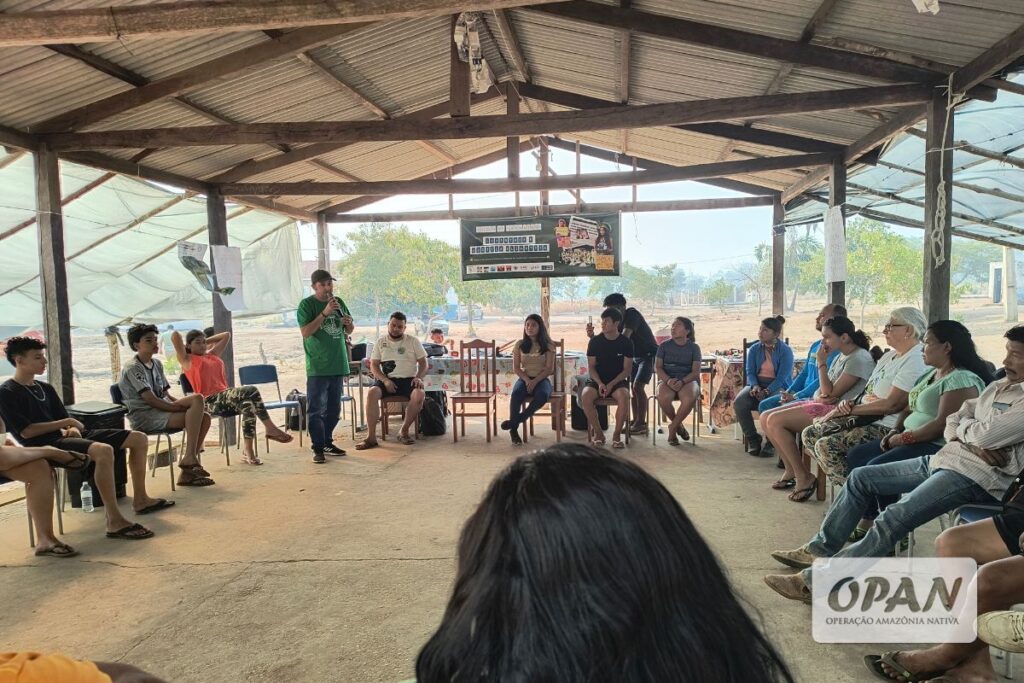
In the course of the three days of the workshop, the young indigenous people who shared their experiences and were shown to a table very alarming to the ‘climate crisis’ in the country. The deforestation of the commonplace, the pollution of the rivers, in the waves of heat and air pollution are just some of the challenges mentioned above. The concern about the future of the next generation went into all of the evidence.
The proposals for the future
With an eye on the future, the youth, indigenous people have developed over the course of two workshops, with proposals to tackle the challenges posed by climate change.
Deforestation has been hailed as one of the major drivers of environmental degradation in the region, IT Tirecatinga, in the county of Sapezal, leading to the destruction of natural habitats and the loss of a species, which is committed not only to biodiversity but also to the traditions of indigenous people who depend on natural resources. As proposed, the young people want to implement a program of reforestation, community, and conservation policies that protect the sensitive areas, in addition to the strengthening of the traditional practices of sustainable forest management.
According to them, the extreme heat, the increase in the heavy rain, and air pollution have also harmed the health of the population, especially the children. Here, the intention of which is to implement adaptation measures, such as the construction of water cisterns to collect the rain water, and public health programs aimed at mitigating the effects of these changes.
Another growing issue that is pointed to by the young men went to the pollution caused by pesticides, and sediment, which adds to the contamination of the rivers and on the ground, resulting in an increase in diseases such as cancer. To combat these problems, the participants intend to develop a project to monitor the quality of water and soil, as well as to promote agricultural practices that reduce the use of harmful chemicals.
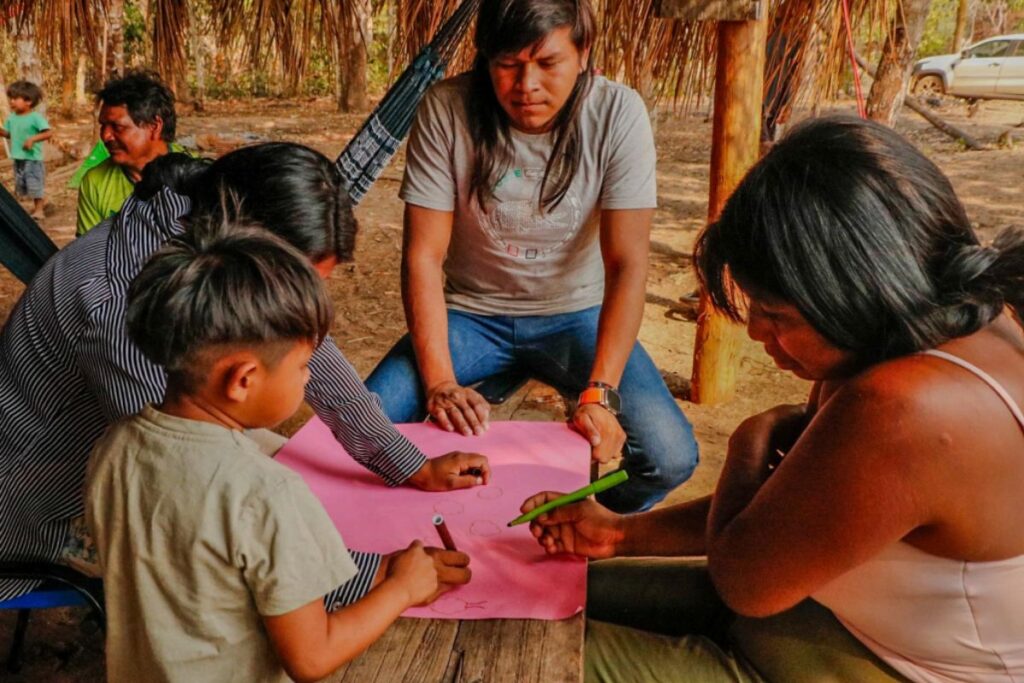
The fire for the workshop
An unexpected and marked the final day of the workshop, the 30th of August, in the Village of Ytu: a fire that has hit the area and stopped all the activities, which would serve as a warning of the consequences of the global warming that is being discussed.
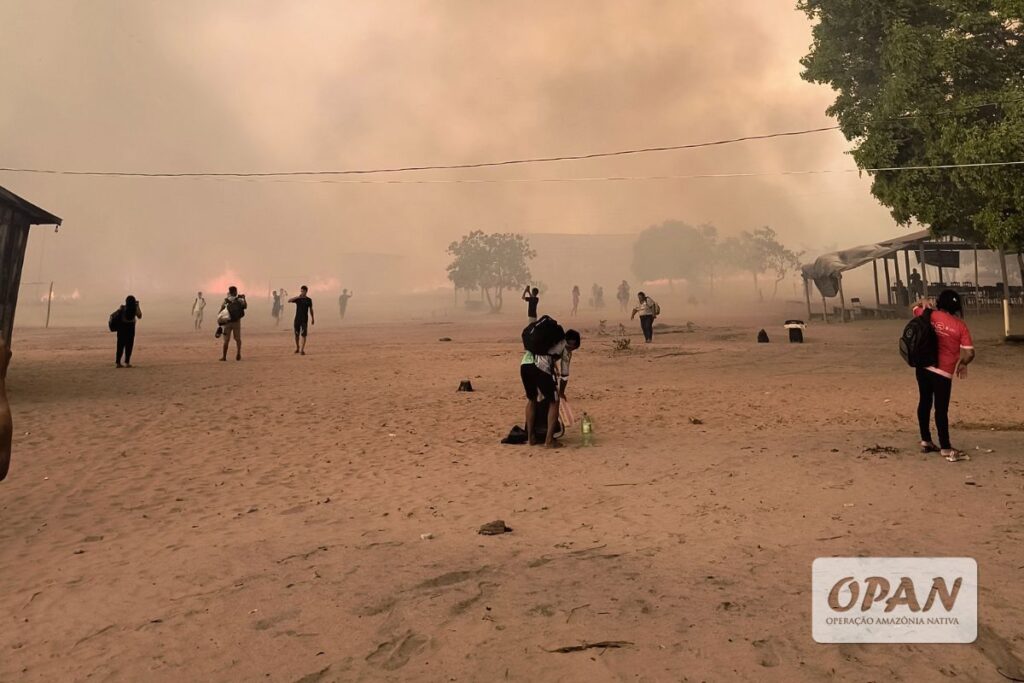
“It was a couple of days and it’s on fire at a farm-and the information that he was the owner, he was engaged with a group in order to be able to put on and you don’t need to worry about it. But on the last day, when the people began to release you to the breakfast, it appeared that a storm was coming, because it was all dark. It started the noise, as if it was rain, but, in truth, he was a fire burning in the forest,” he recalls Liliane Xavier, the indigenous people of the operação Amazônia Nativa (OPAN), and the executive secretary of the Network of the Juruena the Living, he gave a workshop to the side of the adviser Tatianny Jones.
The inhabitants of the village leaders, and the firefighters of IT Apiaká-Kayabi, have joined forces to try and contain the blaze. However, it did not have the personnel or the equipment is suitable to contain the extent of the fire, which is close to the houses.
“It has come to jump off a spark inside the house and started the fire in a blanket. So that the owner of the house came in on time and was able to control and delete to the one on fire, and that was the beginning of there,” says Liliane.
The fire caused damage to the environment, destroying the fauna and flora of the place. A variety of animals, such as wild pigs, birds, and lizards, were found dead and charred.
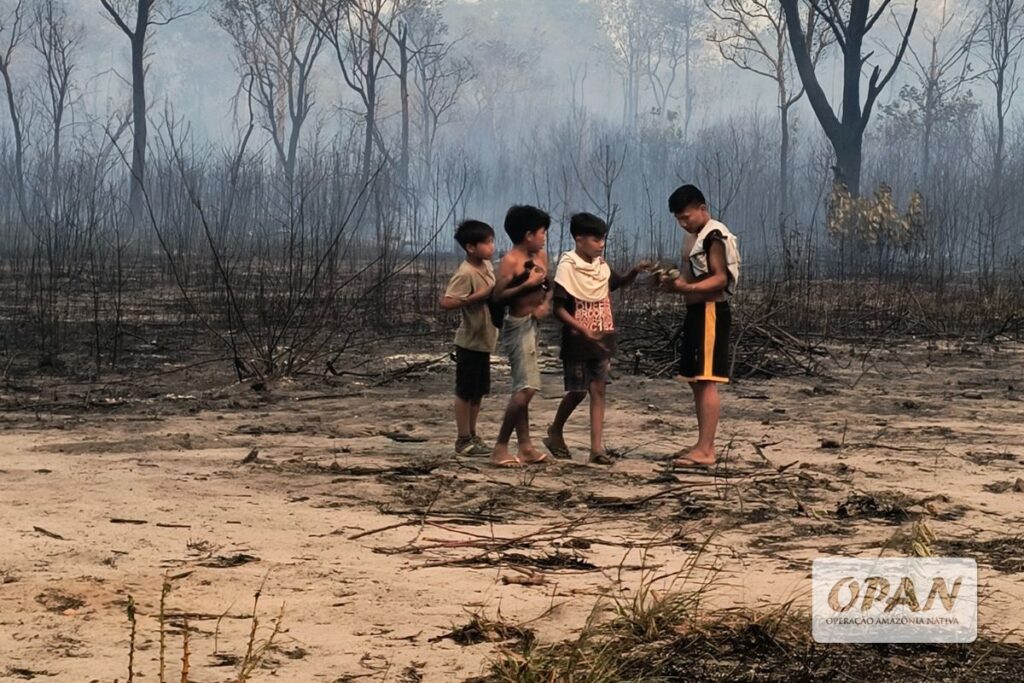
Indigenous young people, and future
Gilmar Kayabi, in the Village of Ytu, Waterfall, also praised the involvement of the youth in the shop, and said that the proposals are valuable in dealing with climate change. “It’s important to find a way to make a living that is respectful of, and not in the nature of, pointing out that the future belongs to the children, who are becoming leaders in their communities. The union between the indigenous peoples and non-indigenous people is critical to this process,” he said in the lead.
